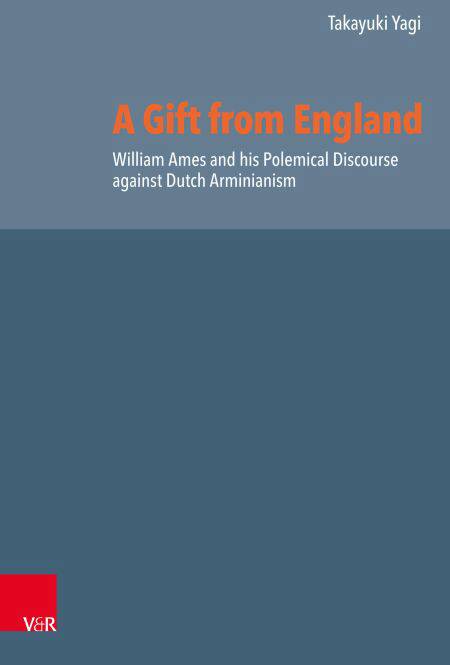
- Afhalen na 1 uur in een winkel met voorraad
- Gratis thuislevering in België vanaf € 30
- Ruim aanbod met 7 miljoen producten
- Afhalen na 1 uur in een winkel met voorraad
- Gratis thuislevering in België vanaf € 30
- Ruim aanbod met 7 miljoen producten
Zoeken
€ 130,00
+ 130 punten
Omschrijving
A Gift from England is the first extensive study of William Ames's (1576-1633) Latin polemical writings against Arminianism during his exile in the Dutch Republic. Through these writings, Ames quickly established himself as a champion of Reformed orthodoxy. This reputation led him to be appointed as a theological advisor to the president of the Synod of Dort (1618-9) and then to be nominated for the newly established chair of practical theology at Leiden University. The Dutch Reformed theologian who compiled Ames's Latin works believed that Ames was indeed a precious gift from England.
By exploring Ames's significant but neglected Latin corpus, this book uncovers Ames's theological contributions to the central issues of the Arminian controversy. It provides a corrective to current readings of Ames's theology by highlighting the links between his polemical writings and his better-known work, The Marrow of Theology. Ames was not, as previous scholarship has suggested, making a compromise or softening Reformed thought by finding a needed corrective in Arminianism. Instead, he was steadfastly defending the Reformed tradition against the threat of Arminianism without being blind to new philosophical and exegetical challenges.
By exploring the medieval scholastic background behind his key arguments, this book also addresses the recent scholarly debate about the medieval roots of early modern Reformed thought. It shows that, by combining Thomistic ideas of physical premotion with Scotistic metaphysics of contingency, Ames trod a path which many other Reformed theologians would follow.
By exploring Ames's significant but neglected Latin corpus, this book uncovers Ames's theological contributions to the central issues of the Arminian controversy. It provides a corrective to current readings of Ames's theology by highlighting the links between his polemical writings and his better-known work, The Marrow of Theology. Ames was not, as previous scholarship has suggested, making a compromise or softening Reformed thought by finding a needed corrective in Arminianism. Instead, he was steadfastly defending the Reformed tradition against the threat of Arminianism without being blind to new philosophical and exegetical challenges.
By exploring the medieval scholastic background behind his key arguments, this book also addresses the recent scholarly debate about the medieval roots of early modern Reformed thought. It shows that, by combining Thomistic ideas of physical premotion with Scotistic metaphysics of contingency, Ames trod a path which many other Reformed theologians would follow.
Specificaties
Betrokkenen
- Auteur(s):
- Uitgeverij:
Inhoud
- Aantal bladzijden:
- 202
- Taal:
- Duits
- Reeks:
Eigenschappen
- Productcode (EAN):
- 9783647522074
- Verschijningsdatum:
- 19/01/2020
- Uitvoering:
- E-book
- Formaat:

Alleen bij Standaard Boekhandel
+ 130 punten op je klantenkaart van Standaard Boekhandel
Beoordelingen
We publiceren alleen reviews die voldoen aan de voorwaarden voor reviews. Bekijk onze voorwaarden voor reviews.











